
A CEGEP is a publicly funded college providing general, professional, academic or a mix of programs; they are exclusive to the province of Quebec's education system. A loanword from French, it originates from the French acronym for collège d'enseignement général et professionnel, sometimes known in English as a "General and Professional College"—it is now considered a word in itself.
The Bachelor of Business Administration (BBA), Bachelor of Science in Business Administration, or Bachelor of Arts in Business Administration is a bachelor's degree in business administration awarded by colleges and universities after completion of four years and typically 120 credits of undergraduate study in the fundamentals of business administration, usually including advanced courses in business analytics, business communication, corporate finance, financial accounting, macroeconomics, management, management accounting, marketing, microeconomics, strategic management, supply chain management, and other key academic subjects associated with the academic discipline of business management.
An academic major is the academic discipline to which an undergraduate student formally commits. A student who successfully completes all courses required for the major qualifies for an undergraduate degree. The word major is also sometimes used administratively to refer to the academic discipline pursued by a graduate student or postgraduate student in a master's or doctoral program.
The Norbert O. Schedler Honors College is an interdisciplinary program at the University of Central Arkansas. One of the first Honors Colleges in the country, the Schedler Honors College leads to the receipt of a minor in Interdisciplinary Studies. Successful completion of the minor requires a senior thesis or a supplemental senior project such as a performance, exhibit, or other creative work.
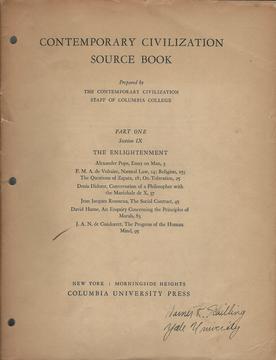
The Core Curriculum was originally developed as the main curriculum used by Columbia College of Columbia University in 1919. Created in the wake of World War I, it became the framework for many similar educational models throughout the United States, and has played an influential role in the incorporation of the concept of Western civilization into the American college curriculum. Today, customized versions of the Core Curriculum are also completed by students in the School of Engineering and Applied Science and the School of General Studies, the other two undergraduate colleges of Columbia University.
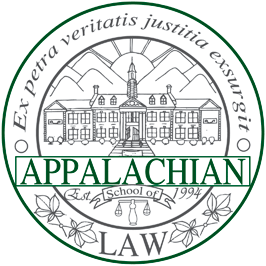
The Appalachian School of Law (ASL) is a private law school in Grundy, Virginia. It is accredited by the American Bar Association and offers a three-year Juris Doctor degree to approximately 128 full-time students. The school was founded in 1994 and admitted its first class of students in August 1997. ASL was started and brought to Buchanan County, Virginia as a tool of economic development for the region. ASL emphasizes professional responsibility and alternative dispute resolution in its curriculum.
Pre-medical is an educational track that undergraduate students mostly in the United States pursue prior to becoming medical students. It involves activities that prepare a student for medical school, such as pre-med coursework, volunteer activities, clinical experience, research, and the application process. Some pre-med programs providing broad preparation are referred to as “pre-professional” and may simultaneously prepare students for entry into a variety of first professional degree or graduate school programs that require similar prerequisites.

Townsend Harris High School is a public high school for the humanities in the New York City borough of Queens. It is located on the campus of Queens College, a public college part of the City University of New York system. The school was named in honor of Townsend Harris, the 19th-century American merchant, politician, and diplomat who served as the first American Consul to Japan. The school's students and alumni often refer to themselves as "Harrisites".
In higher education, a course is a unit of teaching that typically lasts one academic term, is led by one or more instructors, and has a fixed roster of students. A course usually covers an individual subject. Courses generally have a fixed program of sessions every week during the term, called lessons or classes. Students may receive a grade and academic credit after completion of the course. Courses can either be compulsory material or "elective". An elective is usually not a required course, but there are a certain number of non-specific electives that are required for certain majors. The entire collection of courses required to complete an academic degree is called a program of studies.
A Bachelor of Economics is an academic degree awarded to students who have completed undergraduate studies in economics. Specialized economics degrees are also offered as a "tagged" BA (Econ), BS (Econ) / BSc (Econ), BCom (Econ), and BSocSc (Econ), or variants such as the "Bachelor of Economic Science".

University College Maastricht (UCM) is an English language, internationally oriented, liberal arts and sciences college housed in the 15th century Nieuwenhof monastery in Maastricht, Netherlands. Founded in 2002, it is the second of its kind in the Netherlands. The college is part of Maastricht University and offers a selective honours programme with a high workload.
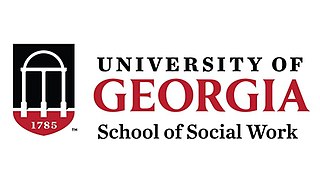
The University of Georgia School of Social Work (SSW) is a college within the University of Georgia (UGA) in Athens, Georgia, United States.
The Master’s in Public Administration at Cornell University is an academic program affiliated with the Jeb E. Brooks School of Public Policy at Cornell University, an Ivy League university in Ithaca, New York.

Vincent Memorial Catholic High School is a private, Roman Catholic high school in Calexico, California. It is located in the Roman Catholic Diocese of San Diego The school serves approximately 300 students.
Caraga Regional Science High School is a public school in San Juan, Surigao City, Philippines. It is the leading school in the Division of Surigao City with high MPS during the annual National Achievement Tests (NAT), and has been consistent in making its name in Division, Regional, National and International level contests.
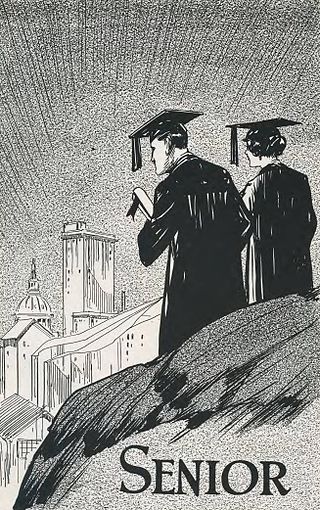
The term senior, in regard to education, has different meanings depending on the country.
The Tepper School of Business is the business school of Carnegie Mellon University. It is located in the university's 140-acre (0.57 km2) campus in Pittsburgh, Pennsylvania.
A high school diploma or high school degree is a diploma awarded upon graduation of high school. A high school diploma is awarded after completion of courses of studies lasting four years, typically from grade 9 to grade 12. It is the school leaving qualification in the United States and Canada.

The Charles H. Lundquist College of Business is the University of Oregon's business school. Founded in 1914, the Lundquist College offers undergraduate degree programs in business administration and accounting, as well as MBA, Executive MBA, Master of Science in Sports Product Management, Master of Accounting, Master of Science in Finance, and PhD graduate programs. These degree programs are supported by four departments and one school of accounting.
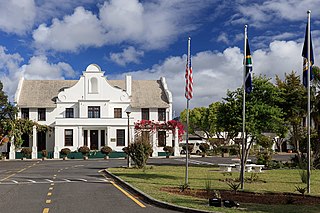
The American International School of Cape Town (AISCT) is a private, non-profit, co-educational institution founded in 1997. The school educates 500 students from 50 countries, ranging in age between 2 and 18 years and instructed by teachers from around the world. The school has an average class size of 16 students with a student-teacher ratio of 10:1. AISCT is accredited by the Western Association of Schools and Colleges (WASC) and endorsed as an independent school by the Western Cape Education Department.










